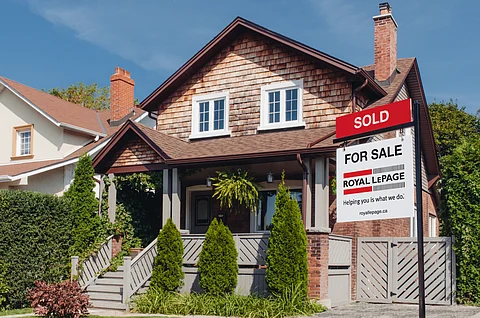

Calgary’s housing market is expected to remain strong in 2025, according to the Calgary Real Estate Board’s (CREB) annual forecast report.
Demand is expected to remain above long-term trends, supported by a growing population and employment, lower mortgage rates and a growing supply of new homes and listings of older homes, with CREB estimating sales to exceed 26,000 units this year.
“While overall sales levels are expected to remain stable, the distribution of sales may change,” says the report. “Easing rental rates, driven by higher completions and slower international migration, are anticipated to impact the condominium market. Meanwhile, lower lending rates, improved supply, and continued, though slower, migration from other provinces are expected to support growth in detached home sales.”
“Record-high new construction levels are adding supply to the market, contributing to an increase in resale listings. As more new homes are completed in 2025, the overall supply is projected to grow. This shift should help the market move toward more balanced conditions, slowing price growth to an annual gain of three per cent.”
The threat of tariffs imposed by the USA hang over the Calgary and Canadian economies, including housing.
“The primary risk is potential tariffs imposed by Canada’s largest trading partner,” says CREB. “Forecasts vary widely, ranging from worst-case scenarios of 25% tariffs on all products to no tariffs.”
“Most projections assume moderate tariffs, avoiding a recession while keeping Alberta as a leader in economic growth within Canada. While most of the near-term risk is centred around tariffs, a federal election and potential policy shift regarding the energy sector could also impact our provincial economy.”
“Economic uncertainty could dampen housing activity, particularly in the first quarter of the year. If broad 25% tariffs are imposed on all exports, Alberta’s economy could enter a recession, negatively affecting investment, employment, and consumer confidence at a time when housing supply is increasing,” continues the report. “Conversely, if the energy sector is exempt from tariffs, or tariffs are short lived, Alberta could experience a stronger economic climate. This scenario would likely support improved job growth, higher interprovincial migration and stronger sales and price growth in the housing market.”
Assuming no tariffs, CREB expects home prices in the city to grow more moderately than last year.
“Citywide price growth in 2025 is expected to moderate compared to the 7% increase reported in 2024,” says the report. “However, price changes will vary across market segments. Increased competition from new, higher-priced units may lead to slower resale price growth in districts where more supply is being added.”
“Lower-priced resale homes are expected to see stronger price growth, supported by steady demand and limited supply options.”
“Despite some adjustments within specific market segments, continued population growth should maintain strong absorption levels across Calgary. However, the market is likely to exhibit a more balanced state compared to the past three years.”
Calgary’s unemployment rate increased last year as high migration levels, particularly from interprovincial migration from Ontario (14,230) and BC (8,379) caused the labour force to expand more quickly than job growth, with “the rise in unemployment primarily affecting younger demographics and newcomers, which has had a limited impact on housing ownership demand,” says CREB.
“Calgary employment growth in 2024 exceeded expectations, thanks to notable gains in manufacturing, followed by accommodation and food services, transportation and warehousing, and information, culture, and recreation sectors,” says the report. “Looking ahead to 2025, employment levels are expected to grow by 2%, driven by gains in construction, retail trade, healthcare, and education. At the same time, easing migration is projected to slow labour force growth, helping to reduce unemployment rates by the end of 2025.”
"Although migration levels in Alberta are starting to ease, they remain exceptionally strong. This has contributed to a 2024 provincial population growth rate of 4.4%, with the Calgary region seeing over 5% growth, both exceeding earlier forecasts. Federal immigration policy changes are expected to slow the influx of both temporary and permanent international migrants.”
“Interprovincial migration is projected to slow from the elevated levels seen in recent years, bringing Alberta’s population growth rate down to 1.9%, according to ATB Economics. While Calgary’s population growth is also expected to slow, it is anticipated to remain higher than the provincial average.”
